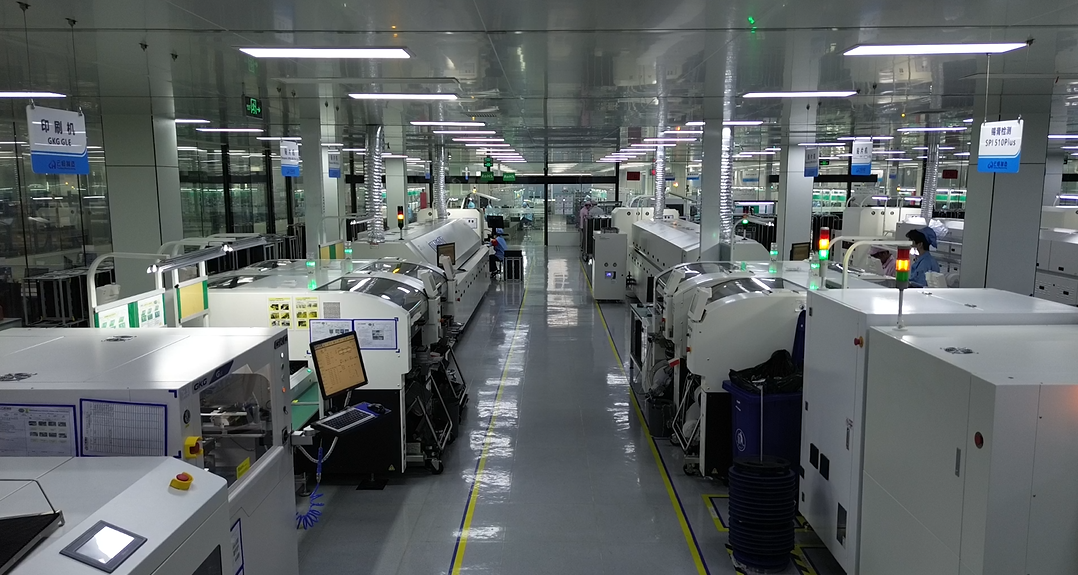TheLandscapeoftheElectronicsIndustry:AnIn-depthExploration(电子产业 英文翻译)
The electronics industry has consistently pushed the boundaries of technological innovation, leading to monumental leaps that have revolutionized everyday life and business operations. From the advent of the transistor to the latest developments in quantum computing, this sector has witnessed remarkable advancements that are not only focused on performance enhancement but also encompass energy efficiency, miniaturization, and the integration of artificial intelligence into consumer products.
Global Supply Chain Dynamics
The electronics industry is supported by a complex web of global supply chains, where companies source components from various parts of the world to manufacture products that are sold globally. This interconnectedness brings cost efficiencies and access to diverse markets but also poses challenges like vulnerability to geopolitical tensions, trade restrictions, and logistical disruptions. The COVID-19 pandemic highlighted these vulnerabilities, leading many firms to reassess their supply chain strategies and consider reshoring or nearshoring options.
Environmental Sustainability
Sustainability has emerged as a critical focus within the electronics industry, with growing concerns about e-waste and environmental impact. Manufacturers are increasingly adopting green practices, such as using recyclable materials, reducing energy consumption during production, and designing products for easier disassembly and recycling. Regulatory frameworks like the European Union's RoHS directive aim to minimize the use of harmful substances in electronic equipment.
Consumer Behavior and Market Trends

Consumer preferences play a significant role in shaping the electronics market. There is a growing demand for smarter, more connected devices that enhance convenience and lifestyle. Wearable technology, smart home devices, and augmented reality gadgets are becoming increasingly popular. Additionally, there is a rising trend towards personalization, with consumers seeking products tailored to their specific needs and preferences. Brands are responding by offering customizable options and leveraging big data analytics to understand consumer behavior better.
Regulatory Compliance and Standards
Compliance with international regulations and standards is crucial for companies operating in the electronics sector. These standards ensure product safety, interoperability, and environmental protection. Navigating these regulatory landscapes requires constant vigilance and adaptation to changes in laws and standards, with companies needing to ensure certification like CE mark and FCC for their products to be sold in specific markets.
Research and Development Investments
Investment in research and development (R&D) is vital for maintaining competitiveness in the electronics industry. Companies allocate significant resources to innovate new technologies, improve existing ones, and explore emerging fields like biotechnology and nanotechnology. Collaboration with academic institutions and startups fosters an ecosystem of innovation, while intellectual property management protects their inventions and maintains a competitive edge.
Talent Acquisition and Retention
In a rapidly evolving industry, attracting and retaining skilled talent is paramount. The electronics sector competes for engineers, scientists, and technicians capable of driving innovation and maintaining quality standards. Companies invest in continuous learning programs, offer competitive salaries, and create a positive work culture to stay ahead. The emphasis on diversity and inclusion initiatives recognizes the value of varied perspectives in fostering creativity and problem-solving.
Cybersecurity Concerns
As electronic devices become more interconnected, cybersecurity emerges as a pressing concern. The proliferation of Internet of Things (IoT) devices increases the attack surface for potential cyber threats. Manufacturers must prioritize security features in their products, collaborate with cybersecurity experts, and provide regular software updates to safeguard user data.
Emerging Markets and Expansion Opportunities
Developing countries present significant growth opportunities for the electronics industry. With improving infrastructure, rising middle-class populations, and increasing internet penetration rates, these regions are becoming key markets for electronic goods. Multinational corporations are expanding their presence through local partnerships, establishing manufacturing units, and tailored products to meet regional demands, driving economic growth and technological advancements in these areas.
In conclusion, the electronics industry is a dynamic and multifaceted domain that continues to evolve at a rapid pace, with impact spanning across different aspects of society. Facing challenges while driving progress requires innovative solutions and strategic planning.
